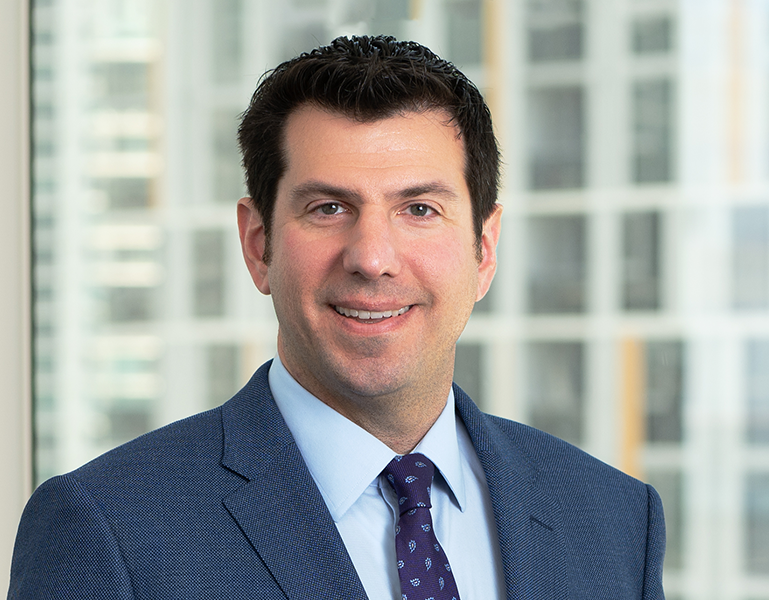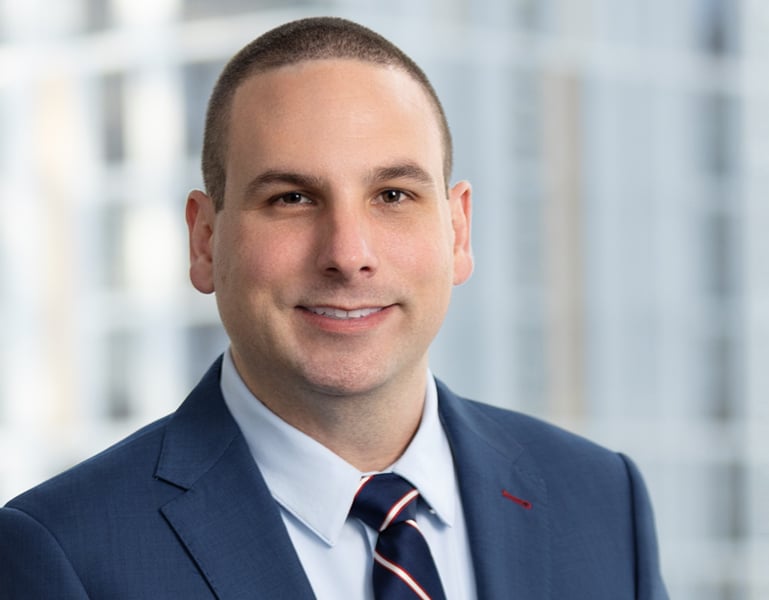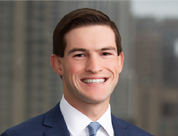Highlights from SEC Speaks 2025
The U.S. Securities and Exchange Commission (the “SEC”) held its annual SEC Speaks conference on May 19 and 20, 2025 in Washington, D.C. The conference featured remarks from Chair Paul S. Atkins, Commissioner Mark T. Uyeda, Commissioner Hester M. Peirce, Commissioner Caroline A. Crenshaw, and Acting Director of the Division of Enforcement Sam Waldon, as well as panel discussions addressing current SEC initiatives, priorities, and enforcement trends for the upcoming year. The conference speakers and panels also provided an update on litigation, judicial, and legislative developments.
Each session focused on the SEC’s fidelity to its three-part mission: (i) protecting investors, (ii) maintaining fair, orderly, efficient markets, and (iii) facilitating capital formation.
Highlights from this year’s conference included significant discussion of the recent changes at the SEC; the SEC’s focus on technology and cybersecurity; and other enforcement and examination trends from the past year.
Chair’s Speech and Commissioners’ Remarks
Statement of Chair Paul S. Atkins
Chair Paul S. Atkins kicked off the conference by declaring that there was a “new day” at the SEC. He noted that in the past, the SEC “has both enabled innovation and, unfortunately at times, stifled it.” Chair Atkins explained that, historically, the securities industry has benefited greatly when market participants and the SEC have collaborated to embrace technological advancements. Against this backdrop, Chair Atkins stated that he has directed the SEC Staff to take actions that would help promote innovation. As an example, Chair Atkins highlighted recent innovations in the crypto industry. As opposed to what he called a “head-in-the-sand” approach previously taken by the SEC with respect to crypto, Chair Atkins stated that he has instructed the SEC Staff to: (1) have transparent discussions with the public regarding crypto, (2) draft rule proposals relating to crypto, and (3) explore the possibility of permitting registrants to trade securities and non-securities “under one roof.”
Chair Atkins also discussed the Commission’s recent request to Congress to permit integration of the SEC’s Strategic Hub for Innovation and Financial Technology, or “FinHub”—which was established in 2018— into other parts of the SEC. He noted that FinHub was created to assist the SEC in understanding emerging technologies, such as artificial intelligence, but the group has since been viewed as a tool of enforcement as opposed to one that fosters innovation. Additionally, he opined that the expertise that currently resides within FinHub can be more efficiently used elsewhere within the SEC.
Chair Atkins further explained that he intends for the SEC to explore providing investors with more access to private funds. He noted that, since 2002, the SEC has taken the position that investing in closed-end funds that invest 15% or more in private funds should be restricted to investors that satisfy the “accredited investor standard.” He explained that this requirement prevents many retail investors from taking advantage of opportunities to invest in such funds.
Finally, Chair Atkins stated that he has instructed the SEC Staff to do a comprehensive review of the Consolidated Audit Trail, or “CAT,” which enables regulators to track all trading activity for listed equities and options. He explained that the CAT has been expensive, costing upwards of $250 million per year, which get passed to investors. He further stated that the centralization by CAT of so much sensitive data presents an information security risk. Chair Atkins concluded his remarks by reemphasizing that the SEC is “getting back to [its] roots of promoting, rather than stifling, innovation.”
Statement of Commissioner Mark T. Uyeda
Commissioner Mark T. Uyeda underscored the importance of returning the SEC to its core mission of regulating the capital markets, rather than “tackling various perceived social ills through financial regulatory tools.” Commissioner Uyeda characterized the SEC’s recent-years’ focus on an expanded regulatory agenda to address issues, such as climate change, diversity and inclusion, and political or social matters, as straying from the SEC’s historical role.
The Commission’s recent “course corrections” include the creation of the Crypto Task Force, dismissal of crypto enforcement actions where the only violation was the failure to register the offer and sale of a token, replacing the Staff Accounting Bulletin (“SAB”) 121 with SAB 122 regarding accounting for crypto, incorporating roundtables to discuss crypto regulation, and the replacement of Staff Legal Bulletin No. 14L with 14M, impacting the shareholder proposal rule.
Citing the SEC’s climate-related disclosure rule, Commissioner Uyeda criticized the rule as an overreach that imposed complex, politically driven obligations on public companies. He explained that the 885-page rule required disclosures of climate-related risks regardless of financial materiality and diverted the Commission’s attention from core market regulation. Instead, he stated that such subject matter is better handled by the U.S. Environmental Protection Agency or the U.S. Department of Energy.
Regarding administrative law judges (“ALJs”), Commissioner Uyeda discussed the implications of the U.S. Supreme Court’s decision in SEC v. Jarkesy, and he proposed procedural reforms to improve the fairness and integrity of administrative adjudications. He recommended that oversight of ALJs be assigned to a non-Chair commissioner. He stated that, while actions seeking non-monetary remedies (cease and desist orders, orders required an accounting, or director and officer bars) are appropriately handled by ALJs, monetary remedies in administrative proceedings can be limited to reduce scrutiny or accusations of the SEC “stacking the odds in its favor.” Commissioner Uyeda further suggested that administrative cases be subject to de novo review in federal district courts, rather than solely to appellate review under the agency-deferential “substantial evidence” standard.
Commissioner Uyeda concluded by affirming the need to steer the SEC back to a predictable, transparent, and market-focused regulatory approach. Commissioner Uyeda remarked that he was “heartened by the move away from regulation by enforcement,” and noted that the “Commission should undertake efforts to provide assurances that regulation by enforcement will not be a tool used for future policymaking.” He expressed confidence in the leadership of Chair Atkins and the SEC’s ability to refocus its efforts on investor protection, capital formation, and the integrity of U.S. markets.
Statement of Commissioner Caroline A. Crenshaw
Commissioner Caroline A. Crenshaw provided “a word of caution as the agency chips away at decades” of the agency’s work while navigating significant market volatility, novel market risks, and calls for deregulatory action across the market. Comparing the current regulatory landscape to a game of Jenga, Commissioner Crenshaw expressed concern that “Main Street Americans” will suffer the most harm as a result of the SEC’s recent actions. Her remarks focused on four key topics: (1) a reduction of agency resources, (2) the recent “wave of staff guidance,” (3) skepticism of “regulation by non-enforcement,” and (4) ignorance of current market risks.
First, Commissioner Crenshaw opined that the “industry’s success . . . depends upon the agency maintaining a deep well of institutional knowledge.” She noted that, over the past few months, the SEC reduced its staff by 15%, including individuals with a vast array of knowledge and experience, who Commissioner Crenshaw noted “are the people who you want in place when volatility (or disaster) strikes.” As such, Commissioner Crenshaw stated that the agency “cannot take the integrity and continuity of this institution as we know it for granted—and we should not assume that the growth and stability we’ve witnessed the past few years will continue.”
Second, Commissioner Crenshaw suggested that the Commission has “diluted or effectively rescinded the laws without due consideration of the costs, benefits, or public feedback.” Namely, in her view, the agency has issued a “wave of staff guidance” on a variety of issues, including meme coins, crypto mining, investment adviser marketing, engagement with management for purposes of Schedules 13D and 13G, and requirements for accredited investors. Commissioner Crenshaw expressed concern with the SEC’s recent guidance on crypto-related issues that “are the equivalent of a wink and nod intended to convey that” the agency does not plan to rigorously apply laws in certain situations. Commissioner Crenshaw also criticized the recent “broader intentional pattern of undoing the dually adopted work of prior Commissions,” which has the potential to impact the SEC’s reputation and credibility as a regulatory body.
Third, Commissioner Crenshaw stated that the SEC is “ignoring courts and failing to faithfully and evenhandedly enforce laws that have been on the books for decades.” Commissioner Crenshaw was skeptical of the agency’s decision to turn to a “regulation by non-enforcement” approach for the crypto industry and stated that she was “deeply troubled” by the SEC’s abandonment of many aspects of the enforcement program. According to Commissioner Crenshaw, these actions amount to a problematic “about-face” that she worries will further undermine the Commission’s reputation and long-standing precedent.
Fourth, Commissioner Crenshaw noted that the SEC is “ignoring significant risks.” As an example, Commissioner Crenshaw highlighted the fallout of FTX in 2022 and noted that there has been a 66% increase in fraud-related crypto losses over the past year. She surmised that the risks associated with crypto “have not gone away,” and the failure to appreciate and address the complexities of the industry “destines us to repeat hard lessons with high stakes as crypto becomes increasingly entangled with traditional finance.” Commissioner Crenshaw also pointed out “the unheeded risks posed by the eroding barrier between the public and the private markets,” which she opined “are not designed for the average Main Street investor.”
Commissioner Crenshaw concluded her remarks by warning that the changes to the regulatory foundation represent “a dangerous game.” Given the decrease to the SEC Staff, Commissioner Crenshaw expressed concern that fewer market protections will ultimately harm small businesses and retail investors.
Statement of Commissioner Hester M. Peirce
Commissioner Hester M. Peirce reflected on the significance of dissent, both in American history and in her tenure at the SEC. Citing her past dissents on crypto-related matters, she stood in her role as the head of the SEC’s Crypto Task Force, signaling a new chapter in the Commission’s approach to crypto regulation.
Commissioner Peirce emphasized that, while crypto is not the most pressing issue on the SEC’s agenda, its regulatory treatment is of growing importance. She stated that the Commission’s prior reliance on enforcement actions to shape crypto policy, in lieu of providing clear rulemaking, had failed to serve investors or innovators. This lack of clarity drove many responsible participants out of U.S. markets and created confusion around how securities laws apply to digital assets.
Commissioner Peirce explained that the Crypto Task Force, formed under then-Acting Chair Uyeda and continued under current Chair Atkins, has worked to reset the SEC’s posture. In the four months since its inception, the Crypto Task Force has hosted multiple public roundtables, collected over 100 written submissions, and engaged in extensive stakeholder outreach. Staff have begun issuing guidance on topics such as crypto mining and custody, and rescinded prior guidance that created unnecessary barriers for regulated entities.
A central focus of the Crypto Task Force’s work is providing clarity on the “security status” of crypto assets. Commissioner Peirce noted that most currently existing crypto assets, such as those that function as payment mechanisms, collectibles, utility tokens, or digital items without conveying financial rights in a business entity, are not securities. However, she explained that some crypto assets may be distributed as part of an “investment contract,” thereby falling under securities laws. She noted, “consistent with its investor protection mission,” the SEC “will continue to vigorously pursue securities fraud, including in cases that involve crypto, but the Commission’s statutory authority does not cover fraud and scams of every kind.”
She noted that the lack of clear guidance around when a crypto asset distributed as part of an investment contract separates from that contract has caused uncertainty for issuers and investors alike. In her view, crypto assets that are no longer tethered to essential managerial efforts or expectations of profit should not be treated as securities. Commissioner Peirce encouraged a pragmatic approach, suggesting that the SEC provide a safe harbor or tailored registration regime that accounts for functional decentralization and the evolving nature of crypto networks.
Commissioner Peirce also addressed NFTs and stablecoins, emphasizing that digital assets that do not convey economic rights or interests in a business entity, such as meme coins, digital collectibles, and programmatically governed NFTs, should not fall under the definition of a security. She advocated for potential exclusions for these types of assets and encouraged further clarity through rulemaking.
Looking ahead, Commissioner Peirce endorsed a dual-path strategy: one that includes additional rulemaking to define the separation between crypto assets and investment contracts and another that supports legislative efforts to clarify the definition of “investment contract.” She expressed support for policy tools such as lock-up mechanisms and smart contract-enforced performance to protect retail investors during early-stage token distributions.
Commissioner Peirce concluded that “we stand ready to work with the public as we have done in the past to incorporate new technologies into our markets.”
Division of Enforcement
During a panel with members of the Division of Enforcement, SEC Staff discussed various enforcement priorities and expectations.
Enforcement Priorities
Sam Waldon, Acting Director for the Division of Enforcement, began the discussion by stating that the SEC has recently made structural changes, including a reorganization of SEC Staff and reporting structures, resulting in four deputy directors, as opposed to regional directors for the various SEC offices. He also offered a “word of caution” and stated that any expectations that the Division of Enforcement would slow down its work are overstated. Acting Director Waldon explained that the Division of Enforcement will focus its efforts on core areas, such as insider trading, accounting fraud, offering fraud, market manipulation, and breaches of fiduciary duties by investment advisers.
Nekia Jones, Deputy Director, Enforcement Southeast, stated that the SEC remains the “cop on the beat” for the securities market. She explained that over the past few months, the SEC has brought cases involving charges relating to insider trading, offering fraud, and accounting fraud. She emphasized that two of the SEC’s areas of focus are (1) fraud targeting retail investors and (2) fraud targeting seniors. Further, she noted that, while the SEC recently rescinded previously delegated formal order authority to division directors, the SEC Staff does not anticipate any resulting hindrance of their work. She stated that the SEC Staff will continue to pursue individual accountability, as well as “prophylactic” relief as warranted, including permanent injunctions and director and officer bars.
Specialized Units
Jason Burt, Deputy Director, Enforcement Specialized Units, discussed the SEC’s various specialized units, which aim to target the most commonly seen misconduct in the market. Deputy Director Burt explained that the specialized units’ key focus is whether retail investors are being harmed by wrongdoers. With that in mind, he explained that the Asset Management Unit will focus on misconduct by investment advisers and investment companies, including misappropriation of funds, misleading disclosures, and prohibited trading practices such as cherry-picking. Deputy Director Burt also highlighted the newly formed Cyber and Emerging Technologies Unit, which will target the misuse of technology to commit fraud, such as cyberattacks that exfiltrate material nonpublic information for insider trading. With respect to the SEC’s Complex Financial Unit, Deputy Director Burt noted that it will continue to investigate sales practice issues, such as suitability or churning. He also stated that the Market Abuse Unit has seen significant upsides from using data analytics to identify those engaged in market manipulation. He further discussed that fraud targeting municipal securities remains a key focus of the SEC via the Public Finance Abuse Unit, particularly in light of the fact that nearly 45% of households directly hold municipal bond securities. Finally, Deputy Director Burt explained that the Office of the Whistleblower continues to reward whistleblower claims as quickly as possible but will work to reduce submissions from serial and frivolous individuals.
Enforcement Process
Silvestre Fontes, Enforcement Liaison, highlighted his newly created role in which he serves as a liaison between the SEC’s partners at the federal, state, and local levels. He stated that part of his job has been reviewing the data and exploring why the SEC works with certain partners in certain regions more than others. He also noted that he is reviewing “areas of improvement” for when the Commission makes referrals to partners, such as the Department of Justice.
Antonia Apps, Deputy Director, Enforcement Northeast, discussed the importance of having a “robust” Wells process. She explained that the Commission believes that due process, fairness, and transparency are important and that an open and informed dialogue between the Staff and defense counsel results in better outcomes, particularly in complex cases. Deputy Director Apps stated that, under its current leadership, the SEC will generally grant meetings with Division leadership, if requested, such as with the Director of Enforcement and/or a Deputy Director. Further, Deputy Director Apps noted that the Staff will be encouraged to give defense counsel more access to the investigatory file during the Wells process, such as testimony transcripts and key documents. However, she noted that there are still some constraints as to what they can share, especially when working in parallel with criminal authorities.
Katherine Zoladz, Deputy Director, Enforcement West, explained that the SEC continues to reward self-reporting, cooperation, and remediation by individuals or entities that have engaged in misconduct. Deputy Director Zoladz noted that the SEC may not bring an enforcement action at all, if all appropriate steps have occurred. She also stated that, if an entity fully remediates issues identified during an SEC examination, there may not be a referral to the Division of Enforcement. Additionally, she explained that the Division of Enforcement will be less focused on violations that do not involve fraud and will instead target severe, long-term, and ongoing abuses.
Nick Grippo, Chief Litigation Counsel, emphasized that the Staff continues to aggressively litigate cases where appropriate. He stated that the Staff has generally been bringing actions in federal court as opposed to the SEC’s administrative courts. He also stated that the Staff will pursue a range of remedies in court, including equitable and injunctive relief, such as disgorgement and industry bars. Finally, he explained that the Staff will continue to seek asset freeze and seizure orders as part of their efforts to protect and return funds to investors.
Division of Enforcement Workshop
During a workshop, representatives from various specialized units of the Division of Enforcement spent time further explaining the Division of Enforcement’s priorities for the upcoming year. The Division of Enforcement emphasized that overall, it is focused on protecting investors, scienter-based charges, and individual accountability.
The Fraud Unit will remain focused on bringing traditional fraud investigations. Particularly, the SEC will prioritize investigating fraud that targets vulnerable populations and retail investors, with a particular focus on elderly individuals. The SEC will also remain focused on financial and disclosure fraud by companies and individuals and will be looking closely at manipulation of financial performance, such as inflated financial metrics, including disclosures for profits and losses and books and records fraud. There will be an emphasis on scienter-based fraud and holding individuals accountable.
The Cyber and Emerging Technologies Unit will be focused on emerging technology, cybersecurity compliance, and other cyber-related misconduct. Generally, the SEC will be targeting violators seeking to use innovation to harm investors and thereby diminish confidence in emerging technologies. Regarding emerging technologies, the SEC will be focused on fraud related to Artificial Intelligence (“AI”) and, in particular, bad actors using AI, or excitement about AI, to commit fraud, such as making misrepresentations about AI usage. The SEC will also maintain an emphasis on cybersecurity compliance as cyber attacks become more common. The SEC is not intending to second-guess good faith, reasonable decisions by regulated entities in the event such entities become victims of cyberattacks. Rather, the SEC is focused on the quality of disclosure of the incidents once they occur and the remediation efforts undertaken after a cyber-attack. Lastly, the Division of Enforcement will maintain a focus on other cyber-related misconduct. This can include actions involving bad actors using fake websites or impersonating broker-dealers to induce victims to invest in fake assets, as well as “relationship investment scams” that involve securities, such as the creation of fake crypto trading platforms and assets.
The Asset Management Unit’s priorities are focused on misappropriation of and failure to safeguard assets, misleading strategy disclosures, undisclosed conflicts of interests, undisclosed or unreasonable fees and expenses, prohibited trading practices, and affiliated and joint transactions. The Asset Management Unit will also focus on enforcement of non-scienter-based violations including Section 206(4)(2) Custody Rule violations along with failure to file required forms with the SEC.
Representatives from the Market Abuse Unit and Public Finance Unit provided updates about their enforcement priorities. The Market Abuse Unit will primarily focus on market manipulation and deceptive trade practices, cherry-picking cases, frontrunning cases, insider trading cases, and hack-to-trade cases. The Public Finance Abuse Unit’s priorities include protection of retail investors, protection of municipal issuers and their taxpayers, offer and disclosure fraud, and municipal advisor fraud.
Judicial and Legislative Developments
Representatives from the SEC Office of the General Counsel gathered to discuss noteworthy litigation and recent judicial decisions that impact SEC rules, regulations, and/or jurisdiction. The session mainly focused on three new developments: post-Jarkesy litigation challenging administrative proceedings, post-Liu litigation challenging disgorgement awards, and challenges to the SEC’s longstanding no admit/no deny policy.
Post-Jarkesy Administrative Proceeding Challenges
The U.S. Supreme Court’s holding in Jarkesy has spurned additional litigation challenging the use of administrative proceedings by other agencies seeking civil penalties. The panelists noted that a court recently held that sanctions imposed during a FINRA proceeding violated Jarkesy. Additionally, the Fifth Circuit held that the FCC should have provided a company with a jury in a case where the FCC sought civil financial penalties. Following Jarkesy, the Fifth Circuit reasoned that the FCC suit was similar to common law negligence, and therefore, the company had a right to a jury trial under the Seventh Amendment. The SEC noted that it expects to see additional challenges to an agency’s use of administrative proceedings due to Jarkesy.
Post-Liu Disgorgement Challenges
In SEC v. Navellier, the SEC initiated legal action against Navellier and his company, Navellier & Associates, Inc. (“NAI”), for violations of Section 206 of the Investment Advisors Act of 1940. Louis Navellier is the founder and chief investment officer of NAI. The SEC alleged that NAI misrepresented the performance of certain investment strategies. The district court ruled in favor of the SEC on summary judgment and ordered NAI to disgorge profits obtained through these misrepresentations. On appeal, the First Circuit affirmed the district court’s ruling on the motion for summary judgment. The First Circuit affirmed the disgorgement award as well. On appeal, NAI argued that the Commission could not seek disgorgement because the investors did not suffer any pecuniary harm. However, the First Circuit held that Liu does not stand for the proposition that investors have to suffer pecuniary harm before the Commission can seek disgorgement. Rather, the disgorgement analysis turns on whether the violator made a profit, not whether the victim suffered pecuniary harm.
NAI has sought a writ of certiorari, requesting the U.S. Supreme Court address whether, in seeking an order requiring registered investment advisers to disgorge profits obtained through fraud, the SEC must show that the adviser’s clients suffered pecuniary harm. The SEC has argued that the petition should be denied because disgorgement is a “profits-focused remedy” that rests on the principle that a wrongdoer should not profit from his own wrongdoing. The case is Navellier & Associates Inc. et al. v. SEC, case number 24-949, in the U.S. Supreme Court.
Challenges to the No Admit/No Deny Policy
The SEC has a long-standing policy to include no admit/no deny clauses in its settlement orders. The clause prohibits defendants who voluntarily choose to settle with the SEC from later denying any wrongdoing or otherwise undermining the credibility of the allegations levied by the SEC while also avoiding trial. The panelists explained that the reasoning behind this policy is fairness: when the SEC agrees to a settlement, it gives up its day in court and ability to put on evidence in support of its allegations. Recently, defendants who have previously settled with the SEC have brought legal challenges to this policy. In SEC v. Romeril, Barry Romeril, the former CFO of Xerox, settled with the SEC to avoid going to trial and agreed to the standard no admit/no deny policy. However, 16 years later, Romeril sought to abrogate the no admit/no deny provision of the settlement agreement. Romeril argued that under Federal Rule of Civil Procedure 60(b)(4), the no admit/no deny provision makes the judgment partially void because the provision violates his First Amendment right to free speech.
The SEC raised procedural and substantive arguments in response to Romeril’s claim. First, the SEC argued that a judgment can be void under Rule 60(b)(4) only for lack of subject matter jurisdiction, lack of personal jurisdiction, or lack of due process. Second, the SEC argued that First Amendment rights can be waived as part of a voluntary settlement, and this is evidenced by the fact that defendants routinely waive rights in litigation. Both the district court and Second Circuit ruled in favor of the SEC, finding that Romeril voluntarily waived his First Amendment right and failed to bring proper a proper challenge under Rule 60(b)(4) because Romeril did not allege any procedural defects. An identical challenge was brought by Christopher Novinger in the Fifth Circuit, but the Fifth Circuit held that Novinger failed to present any grounds for relief under Rule 60(b)(4) because he failed to allege any jurisdictional or due process issues with his original settlement with the SEC.
The SEC recently denied a petition for a rulemaking change to the no admit/no deny policy; that denial has been appealed. It remains the SEC’s policy to require no admit/no deny provisions in its settlement agreements.
If you have any questions about this article, please contact Junaid A. Zubairi at jzubairi@vedderprice.com, Rachel T. Copenhaver at rcopenhaver@vedderprice.com, Brooke E. Conner at bconner@vedderprice.com, Adam L. Schwartz at aschwartz@vedderprice.com, Nusra Ismail at nismail@vedderprice.com, Andrew T. Figueroa at afigueroa@vedderprice.com, Jason B. Sobelman at jsobelman@vedderprice.com, Nitya Bhardwaj at nbhardwaj@vedderprice.com, Paris Mayfield at pmayfield@vedderprice.com, or any Vedder Price attorney with whom you have worked.
Vedder Thinking | Articles Highlights from SEC Speaks 2025
Article
May 23, 2025
The U.S. Securities and Exchange Commission (the “SEC”) held its annual SEC Speaks conference on May 19 and 20, 2025 in Washington, D.C. The conference featured remarks from Chair Paul S. Atkins, Commissioner Mark T. Uyeda, Commissioner Hester M. Peirce, Commissioner Caroline A. Crenshaw, and Acting Director of the Division of Enforcement Sam Waldon, as well as panel discussions addressing current SEC initiatives, priorities, and enforcement trends for the upcoming year. The conference speakers and panels also provided an update on litigation, judicial, and legislative developments.
Each session focused on the SEC’s fidelity to its three-part mission: (i) protecting investors, (ii) maintaining fair, orderly, efficient markets, and (iii) facilitating capital formation.
Highlights from this year’s conference included significant discussion of the recent changes at the SEC; the SEC’s focus on technology and cybersecurity; and other enforcement and examination trends from the past year.
Chair’s Speech and Commissioners’ Remarks
Statement of Chair Paul S. Atkins
Chair Paul S. Atkins kicked off the conference by declaring that there was a “new day” at the SEC. He noted that in the past, the SEC “has both enabled innovation and, unfortunately at times, stifled it.” Chair Atkins explained that, historically, the securities industry has benefited greatly when market participants and the SEC have collaborated to embrace technological advancements. Against this backdrop, Chair Atkins stated that he has directed the SEC Staff to take actions that would help promote innovation. As an example, Chair Atkins highlighted recent innovations in the crypto industry. As opposed to what he called a “head-in-the-sand” approach previously taken by the SEC with respect to crypto, Chair Atkins stated that he has instructed the SEC Staff to: (1) have transparent discussions with the public regarding crypto, (2) draft rule proposals relating to crypto, and (3) explore the possibility of permitting registrants to trade securities and non-securities “under one roof.”
Chair Atkins also discussed the Commission’s recent request to Congress to permit integration of the SEC’s Strategic Hub for Innovation and Financial Technology, or “FinHub”—which was established in 2018— into other parts of the SEC. He noted that FinHub was created to assist the SEC in understanding emerging technologies, such as artificial intelligence, but the group has since been viewed as a tool of enforcement as opposed to one that fosters innovation. Additionally, he opined that the expertise that currently resides within FinHub can be more efficiently used elsewhere within the SEC.
Chair Atkins further explained that he intends for the SEC to explore providing investors with more access to private funds. He noted that, since 2002, the SEC has taken the position that investing in closed-end funds that invest 15% or more in private funds should be restricted to investors that satisfy the “accredited investor standard.” He explained that this requirement prevents many retail investors from taking advantage of opportunities to invest in such funds.
Finally, Chair Atkins stated that he has instructed the SEC Staff to do a comprehensive review of the Consolidated Audit Trail, or “CAT,” which enables regulators to track all trading activity for listed equities and options. He explained that the CAT has been expensive, costing upwards of $250 million per year, which get passed to investors. He further stated that the centralization by CAT of so much sensitive data presents an information security risk. Chair Atkins concluded his remarks by reemphasizing that the SEC is “getting back to [its] roots of promoting, rather than stifling, innovation.”
Statement of Commissioner Mark T. Uyeda
Commissioner Mark T. Uyeda underscored the importance of returning the SEC to its core mission of regulating the capital markets, rather than “tackling various perceived social ills through financial regulatory tools.” Commissioner Uyeda characterized the SEC’s recent-years’ focus on an expanded regulatory agenda to address issues, such as climate change, diversity and inclusion, and political or social matters, as straying from the SEC’s historical role.
The Commission’s recent “course corrections” include the creation of the Crypto Task Force, dismissal of crypto enforcement actions where the only violation was the failure to register the offer and sale of a token, replacing the Staff Accounting Bulletin (“SAB”) 121 with SAB 122 regarding accounting for crypto, incorporating roundtables to discuss crypto regulation, and the replacement of Staff Legal Bulletin No. 14L with 14M, impacting the shareholder proposal rule.
Citing the SEC’s climate-related disclosure rule, Commissioner Uyeda criticized the rule as an overreach that imposed complex, politically driven obligations on public companies. He explained that the 885-page rule required disclosures of climate-related risks regardless of financial materiality and diverted the Commission’s attention from core market regulation. Instead, he stated that such subject matter is better handled by the U.S. Environmental Protection Agency or the U.S. Department of Energy.
Regarding administrative law judges (“ALJs”), Commissioner Uyeda discussed the implications of the U.S. Supreme Court’s decision in SEC v. Jarkesy, and he proposed procedural reforms to improve the fairness and integrity of administrative adjudications. He recommended that oversight of ALJs be assigned to a non-Chair commissioner. He stated that, while actions seeking non-monetary remedies (cease and desist orders, orders required an accounting, or director and officer bars) are appropriately handled by ALJs, monetary remedies in administrative proceedings can be limited to reduce scrutiny or accusations of the SEC “stacking the odds in its favor.” Commissioner Uyeda further suggested that administrative cases be subject to de novo review in federal district courts, rather than solely to appellate review under the agency-deferential “substantial evidence” standard.
Commissioner Uyeda concluded by affirming the need to steer the SEC back to a predictable, transparent, and market-focused regulatory approach. Commissioner Uyeda remarked that he was “heartened by the move away from regulation by enforcement,” and noted that the “Commission should undertake efforts to provide assurances that regulation by enforcement will not be a tool used for future policymaking.” He expressed confidence in the leadership of Chair Atkins and the SEC’s ability to refocus its efforts on investor protection, capital formation, and the integrity of U.S. markets.
Statement of Commissioner Caroline A. Crenshaw
Commissioner Caroline A. Crenshaw provided “a word of caution as the agency chips away at decades” of the agency’s work while navigating significant market volatility, novel market risks, and calls for deregulatory action across the market. Comparing the current regulatory landscape to a game of Jenga, Commissioner Crenshaw expressed concern that “Main Street Americans” will suffer the most harm as a result of the SEC’s recent actions. Her remarks focused on four key topics: (1) a reduction of agency resources, (2) the recent “wave of staff guidance,” (3) skepticism of “regulation by non-enforcement,” and (4) ignorance of current market risks.
First, Commissioner Crenshaw opined that the “industry’s success . . . depends upon the agency maintaining a deep well of institutional knowledge.” She noted that, over the past few months, the SEC reduced its staff by 15%, including individuals with a vast array of knowledge and experience, who Commissioner Crenshaw noted “are the people who you want in place when volatility (or disaster) strikes.” As such, Commissioner Crenshaw stated that the agency “cannot take the integrity and continuity of this institution as we know it for granted—and we should not assume that the growth and stability we’ve witnessed the past few years will continue.”
Second, Commissioner Crenshaw suggested that the Commission has “diluted or effectively rescinded the laws without due consideration of the costs, benefits, or public feedback.” Namely, in her view, the agency has issued a “wave of staff guidance” on a variety of issues, including meme coins, crypto mining, investment adviser marketing, engagement with management for purposes of Schedules 13D and 13G, and requirements for accredited investors. Commissioner Crenshaw expressed concern with the SEC’s recent guidance on crypto-related issues that “are the equivalent of a wink and nod intended to convey that” the agency does not plan to rigorously apply laws in certain situations. Commissioner Crenshaw also criticized the recent “broader intentional pattern of undoing the dually adopted work of prior Commissions,” which has the potential to impact the SEC’s reputation and credibility as a regulatory body.
Third, Commissioner Crenshaw stated that the SEC is “ignoring courts and failing to faithfully and evenhandedly enforce laws that have been on the books for decades.” Commissioner Crenshaw was skeptical of the agency’s decision to turn to a “regulation by non-enforcement” approach for the crypto industry and stated that she was “deeply troubled” by the SEC’s abandonment of many aspects of the enforcement program. According to Commissioner Crenshaw, these actions amount to a problematic “about-face” that she worries will further undermine the Commission’s reputation and long-standing precedent.
Fourth, Commissioner Crenshaw noted that the SEC is “ignoring significant risks.” As an example, Commissioner Crenshaw highlighted the fallout of FTX in 2022 and noted that there has been a 66% increase in fraud-related crypto losses over the past year. She surmised that the risks associated with crypto “have not gone away,” and the failure to appreciate and address the complexities of the industry “destines us to repeat hard lessons with high stakes as crypto becomes increasingly entangled with traditional finance.” Commissioner Crenshaw also pointed out “the unheeded risks posed by the eroding barrier between the public and the private markets,” which she opined “are not designed for the average Main Street investor.”
Commissioner Crenshaw concluded her remarks by warning that the changes to the regulatory foundation represent “a dangerous game.” Given the decrease to the SEC Staff, Commissioner Crenshaw expressed concern that fewer market protections will ultimately harm small businesses and retail investors.
Statement of Commissioner Hester M. Peirce
Commissioner Hester M. Peirce reflected on the significance of dissent, both in American history and in her tenure at the SEC. Citing her past dissents on crypto-related matters, she stood in her role as the head of the SEC’s Crypto Task Force, signaling a new chapter in the Commission’s approach to crypto regulation.
Commissioner Peirce emphasized that, while crypto is not the most pressing issue on the SEC’s agenda, its regulatory treatment is of growing importance. She stated that the Commission’s prior reliance on enforcement actions to shape crypto policy, in lieu of providing clear rulemaking, had failed to serve investors or innovators. This lack of clarity drove many responsible participants out of U.S. markets and created confusion around how securities laws apply to digital assets.
Commissioner Peirce explained that the Crypto Task Force, formed under then-Acting Chair Uyeda and continued under current Chair Atkins, has worked to reset the SEC’s posture. In the four months since its inception, the Crypto Task Force has hosted multiple public roundtables, collected over 100 written submissions, and engaged in extensive stakeholder outreach. Staff have begun issuing guidance on topics such as crypto mining and custody, and rescinded prior guidance that created unnecessary barriers for regulated entities.
A central focus of the Crypto Task Force’s work is providing clarity on the “security status” of crypto assets. Commissioner Peirce noted that most currently existing crypto assets, such as those that function as payment mechanisms, collectibles, utility tokens, or digital items without conveying financial rights in a business entity, are not securities. However, she explained that some crypto assets may be distributed as part of an “investment contract,” thereby falling under securities laws. She noted, “consistent with its investor protection mission,” the SEC “will continue to vigorously pursue securities fraud, including in cases that involve crypto, but the Commission’s statutory authority does not cover fraud and scams of every kind.”
She noted that the lack of clear guidance around when a crypto asset distributed as part of an investment contract separates from that contract has caused uncertainty for issuers and investors alike. In her view, crypto assets that are no longer tethered to essential managerial efforts or expectations of profit should not be treated as securities. Commissioner Peirce encouraged a pragmatic approach, suggesting that the SEC provide a safe harbor or tailored registration regime that accounts for functional decentralization and the evolving nature of crypto networks.
Commissioner Peirce also addressed NFTs and stablecoins, emphasizing that digital assets that do not convey economic rights or interests in a business entity, such as meme coins, digital collectibles, and programmatically governed NFTs, should not fall under the definition of a security. She advocated for potential exclusions for these types of assets and encouraged further clarity through rulemaking.
Looking ahead, Commissioner Peirce endorsed a dual-path strategy: one that includes additional rulemaking to define the separation between crypto assets and investment contracts and another that supports legislative efforts to clarify the definition of “investment contract.” She expressed support for policy tools such as lock-up mechanisms and smart contract-enforced performance to protect retail investors during early-stage token distributions.
Commissioner Peirce concluded that “we stand ready to work with the public as we have done in the past to incorporate new technologies into our markets.”
Division of Enforcement
During a panel with members of the Division of Enforcement, SEC Staff discussed various enforcement priorities and expectations.
Enforcement Priorities
Sam Waldon, Acting Director for the Division of Enforcement, began the discussion by stating that the SEC has recently made structural changes, including a reorganization of SEC Staff and reporting structures, resulting in four deputy directors, as opposed to regional directors for the various SEC offices. He also offered a “word of caution” and stated that any expectations that the Division of Enforcement would slow down its work are overstated. Acting Director Waldon explained that the Division of Enforcement will focus its efforts on core areas, such as insider trading, accounting fraud, offering fraud, market manipulation, and breaches of fiduciary duties by investment advisers.
Nekia Jones, Deputy Director, Enforcement Southeast, stated that the SEC remains the “cop on the beat” for the securities market. She explained that over the past few months, the SEC has brought cases involving charges relating to insider trading, offering fraud, and accounting fraud. She emphasized that two of the SEC’s areas of focus are (1) fraud targeting retail investors and (2) fraud targeting seniors. Further, she noted that, while the SEC recently rescinded previously delegated formal order authority to division directors, the SEC Staff does not anticipate any resulting hindrance of their work. She stated that the SEC Staff will continue to pursue individual accountability, as well as “prophylactic” relief as warranted, including permanent injunctions and director and officer bars.
Specialized Units
Jason Burt, Deputy Director, Enforcement Specialized Units, discussed the SEC’s various specialized units, which aim to target the most commonly seen misconduct in the market. Deputy Director Burt explained that the specialized units’ key focus is whether retail investors are being harmed by wrongdoers. With that in mind, he explained that the Asset Management Unit will focus on misconduct by investment advisers and investment companies, including misappropriation of funds, misleading disclosures, and prohibited trading practices such as cherry-picking. Deputy Director Burt also highlighted the newly formed Cyber and Emerging Technologies Unit, which will target the misuse of technology to commit fraud, such as cyberattacks that exfiltrate material nonpublic information for insider trading. With respect to the SEC’s Complex Financial Unit, Deputy Director Burt noted that it will continue to investigate sales practice issues, such as suitability or churning. He also stated that the Market Abuse Unit has seen significant upsides from using data analytics to identify those engaged in market manipulation. He further discussed that fraud targeting municipal securities remains a key focus of the SEC via the Public Finance Abuse Unit, particularly in light of the fact that nearly 45% of households directly hold municipal bond securities. Finally, Deputy Director Burt explained that the Office of the Whistleblower continues to reward whistleblower claims as quickly as possible but will work to reduce submissions from serial and frivolous individuals.
Enforcement Process
Silvestre Fontes, Enforcement Liaison, highlighted his newly created role in which he serves as a liaison between the SEC’s partners at the federal, state, and local levels. He stated that part of his job has been reviewing the data and exploring why the SEC works with certain partners in certain regions more than others. He also noted that he is reviewing “areas of improvement” for when the Commission makes referrals to partners, such as the Department of Justice.
Antonia Apps, Deputy Director, Enforcement Northeast, discussed the importance of having a “robust” Wells process. She explained that the Commission believes that due process, fairness, and transparency are important and that an open and informed dialogue between the Staff and defense counsel results in better outcomes, particularly in complex cases. Deputy Director Apps stated that, under its current leadership, the SEC will generally grant meetings with Division leadership, if requested, such as with the Director of Enforcement and/or a Deputy Director. Further, Deputy Director Apps noted that the Staff will be encouraged to give defense counsel more access to the investigatory file during the Wells process, such as testimony transcripts and key documents. However, she noted that there are still some constraints as to what they can share, especially when working in parallel with criminal authorities.
Katherine Zoladz, Deputy Director, Enforcement West, explained that the SEC continues to reward self-reporting, cooperation, and remediation by individuals or entities that have engaged in misconduct. Deputy Director Zoladz noted that the SEC may not bring an enforcement action at all, if all appropriate steps have occurred. She also stated that, if an entity fully remediates issues identified during an SEC examination, there may not be a referral to the Division of Enforcement. Additionally, she explained that the Division of Enforcement will be less focused on violations that do not involve fraud and will instead target severe, long-term, and ongoing abuses.
Nick Grippo, Chief Litigation Counsel, emphasized that the Staff continues to aggressively litigate cases where appropriate. He stated that the Staff has generally been bringing actions in federal court as opposed to the SEC’s administrative courts. He also stated that the Staff will pursue a range of remedies in court, including equitable and injunctive relief, such as disgorgement and industry bars. Finally, he explained that the Staff will continue to seek asset freeze and seizure orders as part of their efforts to protect and return funds to investors.
Division of Enforcement Workshop
During a workshop, representatives from various specialized units of the Division of Enforcement spent time further explaining the Division of Enforcement’s priorities for the upcoming year. The Division of Enforcement emphasized that overall, it is focused on protecting investors, scienter-based charges, and individual accountability.
The Fraud Unit will remain focused on bringing traditional fraud investigations. Particularly, the SEC will prioritize investigating fraud that targets vulnerable populations and retail investors, with a particular focus on elderly individuals. The SEC will also remain focused on financial and disclosure fraud by companies and individuals and will be looking closely at manipulation of financial performance, such as inflated financial metrics, including disclosures for profits and losses and books and records fraud. There will be an emphasis on scienter-based fraud and holding individuals accountable.
The Cyber and Emerging Technologies Unit will be focused on emerging technology, cybersecurity compliance, and other cyber-related misconduct. Generally, the SEC will be targeting violators seeking to use innovation to harm investors and thereby diminish confidence in emerging technologies. Regarding emerging technologies, the SEC will be focused on fraud related to Artificial Intelligence (“AI”) and, in particular, bad actors using AI, or excitement about AI, to commit fraud, such as making misrepresentations about AI usage. The SEC will also maintain an emphasis on cybersecurity compliance as cyber attacks become more common. The SEC is not intending to second-guess good faith, reasonable decisions by regulated entities in the event such entities become victims of cyberattacks. Rather, the SEC is focused on the quality of disclosure of the incidents once they occur and the remediation efforts undertaken after a cyber-attack. Lastly, the Division of Enforcement will maintain a focus on other cyber-related misconduct. This can include actions involving bad actors using fake websites or impersonating broker-dealers to induce victims to invest in fake assets, as well as “relationship investment scams” that involve securities, such as the creation of fake crypto trading platforms and assets.
The Asset Management Unit’s priorities are focused on misappropriation of and failure to safeguard assets, misleading strategy disclosures, undisclosed conflicts of interests, undisclosed or unreasonable fees and expenses, prohibited trading practices, and affiliated and joint transactions. The Asset Management Unit will also focus on enforcement of non-scienter-based violations including Section 206(4)(2) Custody Rule violations along with failure to file required forms with the SEC.
Representatives from the Market Abuse Unit and Public Finance Unit provided updates about their enforcement priorities. The Market Abuse Unit will primarily focus on market manipulation and deceptive trade practices, cherry-picking cases, frontrunning cases, insider trading cases, and hack-to-trade cases. The Public Finance Abuse Unit’s priorities include protection of retail investors, protection of municipal issuers and their taxpayers, offer and disclosure fraud, and municipal advisor fraud.
Judicial and Legislative Developments
Representatives from the SEC Office of the General Counsel gathered to discuss noteworthy litigation and recent judicial decisions that impact SEC rules, regulations, and/or jurisdiction. The session mainly focused on three new developments: post-Jarkesy litigation challenging administrative proceedings, post-Liu litigation challenging disgorgement awards, and challenges to the SEC’s longstanding no admit/no deny policy.
Post-Jarkesy Administrative Proceeding Challenges
The U.S. Supreme Court’s holding in Jarkesy has spurned additional litigation challenging the use of administrative proceedings by other agencies seeking civil penalties. The panelists noted that a court recently held that sanctions imposed during a FINRA proceeding violated Jarkesy. Additionally, the Fifth Circuit held that the FCC should have provided a company with a jury in a case where the FCC sought civil financial penalties. Following Jarkesy, the Fifth Circuit reasoned that the FCC suit was similar to common law negligence, and therefore, the company had a right to a jury trial under the Seventh Amendment. The SEC noted that it expects to see additional challenges to an agency’s use of administrative proceedings due to Jarkesy.
Post-Liu Disgorgement Challenges
In SEC v. Navellier, the SEC initiated legal action against Navellier and his company, Navellier & Associates, Inc. (“NAI”), for violations of Section 206 of the Investment Advisors Act of 1940. Louis Navellier is the founder and chief investment officer of NAI. The SEC alleged that NAI misrepresented the performance of certain investment strategies. The district court ruled in favor of the SEC on summary judgment and ordered NAI to disgorge profits obtained through these misrepresentations. On appeal, the First Circuit affirmed the district court’s ruling on the motion for summary judgment. The First Circuit affirmed the disgorgement award as well. On appeal, NAI argued that the Commission could not seek disgorgement because the investors did not suffer any pecuniary harm. However, the First Circuit held that Liu does not stand for the proposition that investors have to suffer pecuniary harm before the Commission can seek disgorgement. Rather, the disgorgement analysis turns on whether the violator made a profit, not whether the victim suffered pecuniary harm.
NAI has sought a writ of certiorari, requesting the U.S. Supreme Court address whether, in seeking an order requiring registered investment advisers to disgorge profits obtained through fraud, the SEC must show that the adviser’s clients suffered pecuniary harm. The SEC has argued that the petition should be denied because disgorgement is a “profits-focused remedy” that rests on the principle that a wrongdoer should not profit from his own wrongdoing. The case is Navellier & Associates Inc. et al. v. SEC, case number 24-949, in the U.S. Supreme Court.
Challenges to the No Admit/No Deny Policy
The SEC has a long-standing policy to include no admit/no deny clauses in its settlement orders. The clause prohibits defendants who voluntarily choose to settle with the SEC from later denying any wrongdoing or otherwise undermining the credibility of the allegations levied by the SEC while also avoiding trial. The panelists explained that the reasoning behind this policy is fairness: when the SEC agrees to a settlement, it gives up its day in court and ability to put on evidence in support of its allegations. Recently, defendants who have previously settled with the SEC have brought legal challenges to this policy. In SEC v. Romeril, Barry Romeril, the former CFO of Xerox, settled with the SEC to avoid going to trial and agreed to the standard no admit/no deny policy. However, 16 years later, Romeril sought to abrogate the no admit/no deny provision of the settlement agreement. Romeril argued that under Federal Rule of Civil Procedure 60(b)(4), the no admit/no deny provision makes the judgment partially void because the provision violates his First Amendment right to free speech.
The SEC raised procedural and substantive arguments in response to Romeril’s claim. First, the SEC argued that a judgment can be void under Rule 60(b)(4) only for lack of subject matter jurisdiction, lack of personal jurisdiction, or lack of due process. Second, the SEC argued that First Amendment rights can be waived as part of a voluntary settlement, and this is evidenced by the fact that defendants routinely waive rights in litigation. Both the district court and Second Circuit ruled in favor of the SEC, finding that Romeril voluntarily waived his First Amendment right and failed to bring proper a proper challenge under Rule 60(b)(4) because Romeril did not allege any procedural defects. An identical challenge was brought by Christopher Novinger in the Fifth Circuit, but the Fifth Circuit held that Novinger failed to present any grounds for relief under Rule 60(b)(4) because he failed to allege any jurisdictional or due process issues with his original settlement with the SEC.
The SEC recently denied a petition for a rulemaking change to the no admit/no deny policy; that denial has been appealed. It remains the SEC’s policy to require no admit/no deny provisions in its settlement agreements.
If you have any questions about this article, please contact Junaid A. Zubairi at jzubairi@vedderprice.com, Rachel T. Copenhaver at rcopenhaver@vedderprice.com, Brooke E. Conner at bconner@vedderprice.com, Adam L. Schwartz at aschwartz@vedderprice.com, Nusra Ismail at nismail@vedderprice.com, Andrew T. Figueroa at afigueroa@vedderprice.com, Jason B. Sobelman at jsobelman@vedderprice.com, Nitya Bhardwaj at nbhardwaj@vedderprice.com, Paris Mayfield at pmayfield@vedderprice.com, or any Vedder Price attorney with whom you have worked.








